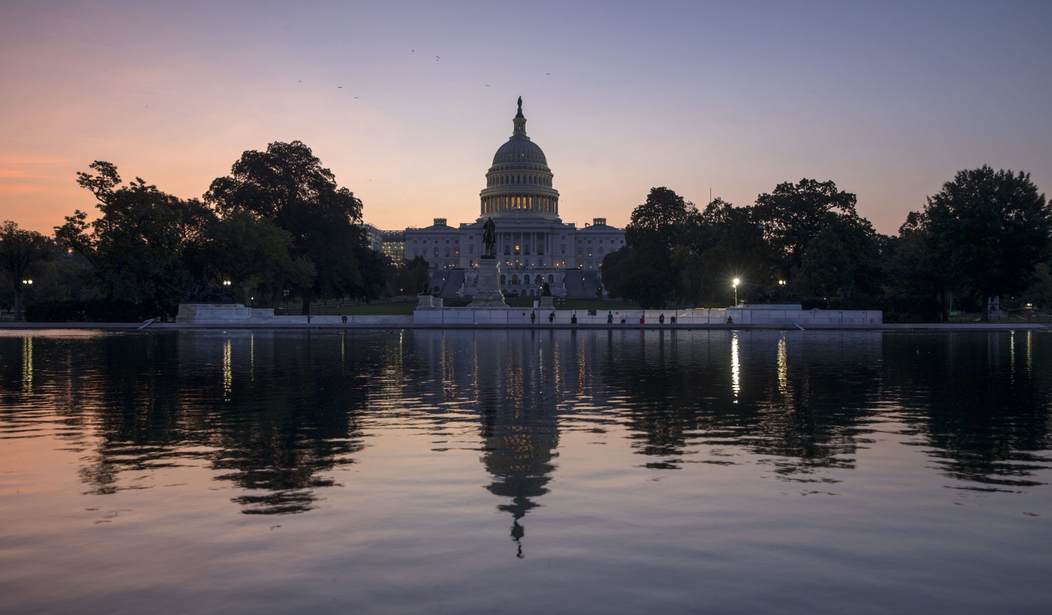WASHINGTON – Former Gov. Ed Rendell (D-Pa.), co-chairman of the Fix the Debt Coalition, advised Democrats to advocate for fixing the “perilous” condition of Medicare, Medicaid and Social Security as a way to reduce deficit spending, control the $21.4 trillion national debt and protect those programs for future generations.
“The point all of us advocates have to make, particularly those of us who are progressives or left of center, we have to remind the progressive elements of our party that if you really want to keep the safety net intact, functioning to help people and creating opportunity for people, we can’t let the interest payment on the debt swallow up all the discretionary money. That’s exactly what’s happening,” Rendell warned during a press call on Wednesday with former Sen. Judd Gregg (R-N.H.), co-chairman of Fix the Debt.
“Each year, interest payment swallow up more of the budget and that has to come from discretionary and social programs, which are the programs that we think are so important like food stamps, like mental healthcare coverage, like so many things that are crucial to creating a strong and viable safety net. We’ve also got to go back and pass fiscally responsible pro-growth tax changes,” he added.
Rendell said both Democrats and Republicans should vote for candidates who commit to support polices that would lower the deficit.
“The best thing we can do for our children and our grandchildren is take care of the debt,” he said. “I think this an issue that is still below the radar screen for most Americans. I think most Americans don’t think about the debt. They don’t realize what our interest payments are doing to our capacity to fund discretionary programs. They don’t realize how perilous the condition of Medicare, Medicaid and Social Security are.”
Touching upon the midterm elections, Rendell said, “Democrats have been insisting on pay-fors for the last couple of years. If we take back the House, I’ll be interested to see if we still insist on real pay-fors once we are in the majority.”
So far this year, the federal government has paid more than $455.6 billion in interest on the debt. The government paid $458.5 billion in interest on the debt last fiscal year. When the figures for August 2018 interest payments are calculated, the government will have spent more on interest in fiscal year 2018 than all of fiscal year 2017. The fiscal year ends on Sept. 30.
Gregg, former chairman of the Senate Budget Committee, warned that interest on the debt has become “staggering” and will get worse as the Federal Reserve raises rates.
“The problem with interest is it’s a total loss leader – you get nothing for it, you give money to people, a lot of them not even in this country and you don’t get any quality government for it. And so to pay this interest you are going to have to borrow more,” Gregg said. “We still need to be very vigilant and make a major commitment to try to raise the attention to the debt issue and what it may do to our children, which is reduce their standard of living dramatically if we don’t straighten it out.”
Gregg said that the climbing national debt is on its way to becoming equal to size of the U.S. economy.
“The debt isn’t going away. Kent Conrad, my close friend and fellow chairman of the Budget Committee, used to say the debt is a threat and it’s absolutely true – and it’s getting to be more a threat,” he said. “We’re looking at a debt to GDP ratio which is around 71 percent, I think, and heading north into the 100 percent realm as we head toward the end of the next decade.”
Rendell described 2018 as “almost a disheartening year for those of us who are part of the Fix the Debt movement, in what we saw literally from both sides about spending.”
“In fact, we have a program where we label people as ‘deficit heroes’ and we had a hard time reaching – I think we reached a number of 10 for the entire Congress,” he added.
For starters, Rendell advised both parties to commit to making sure “all future spending” is “fully paid for” moving forward.
“The first thing we need to do is stop digging the hole deeper, that is absolutely essential,” he said. “We have to reform Medicare and Medicaid, improving the efficiency and the overall healthcare delivery system and limit future cost growth. We can do that.”
Gregg also warned that a national “paid family leave” program, which Congress and the White House are considering, could increase federal spending even higher depending on how it’s financed.
“These types of ideas should be rejected out of hand. If there’s going to be a family leave bill that’s paid for by taxpayers, that has to be paid for in real terms; it can’t be done with gamesmanship,” he said.
In response to a question submitted by PJM, Gregg said there is “absolutely” no way to reduce the deficit if elected officials continue to view Medicare, Medicaid and Social Security reform as politically unpopular.
“You have to be willing to address the drivers of spending and the drivers of spending are primarily healthcare – if you want to be honest about it, primarily, Medicare and Medicaid, and Social Security plays a big role here,” Gregg said. “The other thing you have to do is not add new entitlements that aren’t paid for.”
Rendell agreed with Gregg’s assessment of the need for entitlement reform.
“We need some Americans with courage and with the willingness to tell the people the truth and get this done and it has to be done with both sides holding hands,” he said.









Join the conversation as a VIP Member